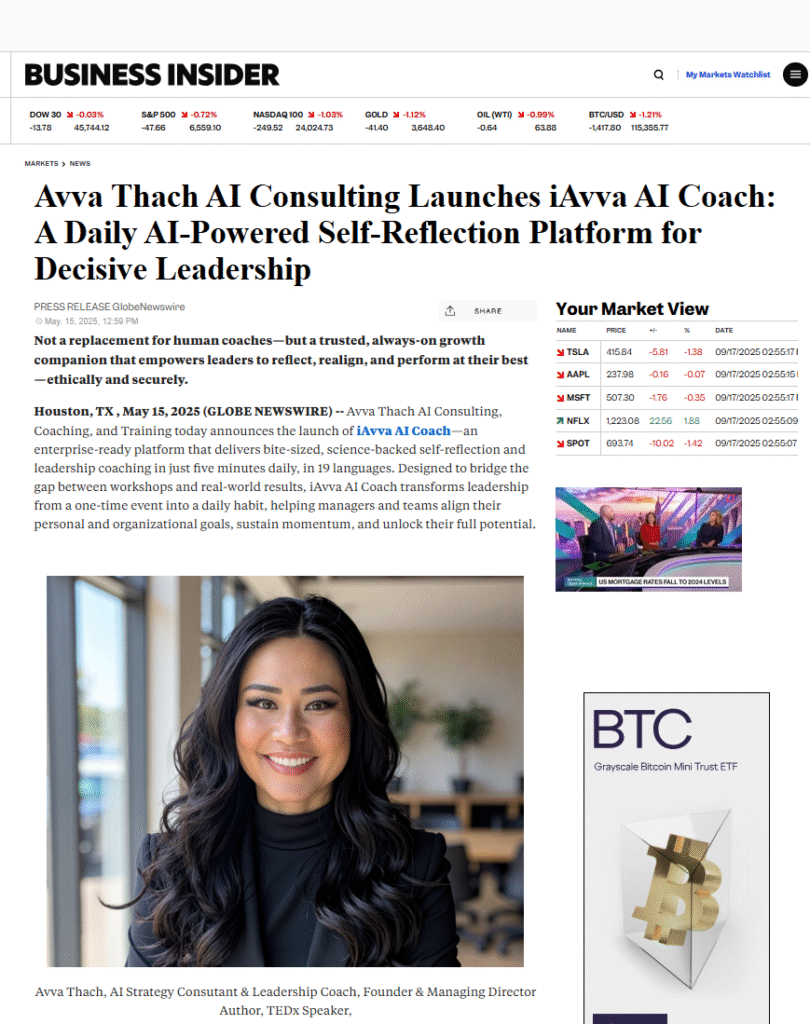In today’s fast-paced and ever-evolving business landscape, the significance of leadership development coaching cannot be overstated. Organizations are increasingly recognizing that effective leadership is a cornerstone of success. As companies navigate complex challenges, the need for leaders who can inspire, motivate, and guide teams has never been more critical.
Leadership development coaching serves as a vital tool in cultivating these essential skills, enabling leaders to adapt to change, foster innovation, and drive organizational growth. Moreover, leadership development coaching is not merely about enhancing individual capabilities; it is about creating a culture of continuous improvement within the organization. When leaders are equipped with the right tools and insights, they can better align their teams with the company’s vision and values.
This alignment fosters a sense of purpose and engagement among employees, ultimately leading to higher productivity and job satisfaction. In essence, investing in leadership development coaching is an investment in the organization’s future, ensuring that it remains competitive and resilient in an ever-changing market.
Key Takeaways
- Leadership development coaching is crucial for the growth and success of individuals and organizations.
- A leadership development coach plays a key role in guiding and mentoring individuals to reach their full potential as leaders.
- Identifying leadership potential in individuals involves assessing their skills, traits, and willingness to take on leadership roles.
- Assessing the need for leadership development coaching requires evaluating the current and future leadership needs of the organization.
- Investing in leadership development coaching leads to improved employee performance, retention, and overall organizational success.
Understanding the Role of a Leadership Development Coach
A leadership development coach plays a multifaceted role that extends beyond traditional training methods. These professionals are not just instructors; they are facilitators of growth who work closely with individuals to unlock their potential. A leadership development coach provides personalized guidance, helping leaders identify their strengths and areas for improvement.
Additionally, a leadership development coach acts as a sounding board for leaders, offering constructive feedback and insights that can lead to transformative change. They employ various coaching techniques, such as active listening, powerful questioning, and goal-setting strategies, to help leaders develop self-awareness and emotional intelligence.
By fostering a deeper understanding of their own leadership style and its impact on others, leaders can cultivate more effective relationships with their teams and stakeholders.
Identifying Leadership Potential in Individuals

Recognizing leadership potential in individuals is a critical step in the leadership development process. Not everyone who holds a managerial title possesses the innate qualities of a leader; therefore, organizations must adopt a proactive approach to identify those who have the potential to excel in leadership roles. This involves looking beyond traditional metrics such as tenure or performance reviews and considering attributes like adaptability, communication skills, and emotional intelligence.
To effectively identify leadership potential, organizations can implement various assessment tools and methodologies. These may include 360-degree feedback assessments, personality tests, and behavioral interviews that focus on past experiences and decision-making processes. By gathering insights from multiple sources, organizations can gain a comprehensive understanding of an individual’s capabilities and readiness for leadership roles.
Furthermore, fostering an environment that encourages open dialogue about career aspirations can help individuals express their interest in leadership opportunities.
Assessing the Need for Leadership Development Coaching
| Metrics | Results |
|---|---|
| Employee Engagement | 75% |
| Leadership Effectiveness | 80% |
| Employee Turnover | 10% |
| Productivity | Increased by 15% |
Before embarking on a leadership development coaching initiative, it is essential to assess the specific needs of the organization and its leaders. This assessment should involve a thorough analysis of the current leadership landscape, including identifying gaps in skills, knowledge, and behaviors that may hinder effective leadership. Engaging in discussions with key stakeholders can provide valuable insights into the challenges faced by leaders and the desired outcomes of coaching efforts.
Additionally, organizations should consider external factors that may necessitate leadership development coaching. For instance, changes in market dynamics, technological advancements, or shifts in organizational strategy may require leaders to adapt their approaches and develop new competencies. By conducting a comprehensive needs assessment, organizations can tailor their coaching programs to address the unique challenges faced by their leaders and ensure that coaching efforts align with broader organizational goals.
The Benefits of Investing in Leadership Development Coaching
Investing in leadership development coaching yields numerous benefits that extend beyond individual leaders to impact the entire organization. One of the most significant advantages is the enhancement of leadership effectiveness.
This increased effectiveness translates into improved team dynamics and overall organizational success. Furthermore, leadership development coaching fosters a culture of continuous learning and growth within the organization. When leaders prioritize their own development, they set an example for their teams, encouraging a mindset of lifelong learning.
This culture not only enhances employee engagement but also contributes to talent retention as individuals feel supported in their professional growth. Ultimately, organizations that invest in leadership development coaching position themselves as employers of choice, attracting top talent who seek opportunities for advancement.
Tailoring Leadership Development Coaching to Individual Needs

One of the hallmarks of effective leadership development coaching is its ability to be tailored to the unique needs of each individual leader. Recognizing that no two leaders are alike, coaches must take into account factors such as personality traits, learning styles, and specific challenges faced by each leader. This personalized approach ensures that coaching sessions are relevant and impactful, allowing leaders to engage deeply with the material.
To tailor coaching effectively, coaches often begin by conducting assessments or interviews to gather information about the leader’s goals and aspirations. This initial understanding serves as a foundation for developing a customized coaching plan that aligns with the leader’s objectives. Additionally, ongoing feedback and adjustments throughout the coaching process are essential to ensure that the leader remains on track and continues to make progress toward their goals.
Implementing Leadership Development Coaching in the Workplace
Implementing leadership development coaching within an organization requires careful planning and execution. To begin with, organizations should establish clear objectives for the coaching program and communicate these goals to all stakeholders involved. This transparency fosters buy-in from both leaders and team members, ensuring that everyone understands the purpose and benefits of the initiative.
Moreover, organizations should consider integrating coaching into existing leadership development frameworks or training programs. By aligning coaching efforts with other developmental activities such as workshops or mentorship programs, organizations can create a cohesive learning experience for leaders. Additionally, providing ongoing support and resources for coaches can enhance the effectiveness of the program and ensure that it remains relevant in a rapidly changing business environment.
Measuring the Success of Leadership Development Coaching Programs
To determine the effectiveness of leadership development coaching programs, organizations must establish clear metrics for success. These metrics may include qualitative measures such as participant feedback and self-assessments as well as quantitative indicators like employee engagement scores or team performance metrics. By employing a combination of both types of measures, organizations can gain a holistic view of the impact of coaching on individual leaders and their teams.
Regular evaluations should be conducted throughout the coaching process to assess progress toward established goals. This ongoing assessment allows organizations to make data-driven decisions about program adjustments or enhancements as needed. Additionally, sharing success stories and testimonials from participants can help reinforce the value of coaching within the organization and encourage further investment in leadership development initiatives.
Overcoming Challenges in Leadership Development Coaching
While leadership development coaching offers numerous benefits, it is not without its challenges. One common obstacle is resistance from leaders who may be skeptical about the value of coaching or hesitant to engage in self-reflection. To address this resistance, organizations must foster an open culture that emphasizes the importance of personal growth and development.
Leaders should be encouraged to view coaching as an opportunity for improvement rather than a critique of their abilities. Another challenge lies in ensuring that coaching efforts are aligned with organizational goals and priorities. If coaching programs are perceived as disconnected from broader business objectives, they may struggle to gain traction or support from key stakeholders.
To overcome this challenge, organizations should involve senior leadership in the design and implementation of coaching initiatives, ensuring that they are aligned with strategic priorities and receive necessary resources.
The Future of Leadership Development Coaching
As organizations continue to evolve in response to technological advancements and changing workforce dynamics, the future of leadership development coaching will likely see significant transformations. One emerging trend is the integration of technology into coaching practices. Virtual coaching platforms and digital tools are becoming increasingly popular as they offer flexibility and accessibility for leaders seeking development opportunities.
Additionally, there is a growing emphasis on diversity and inclusion within leadership development coaching programs. Organizations are recognizing the importance of cultivating diverse leadership teams that reflect a variety of perspectives and experiences. As such, coaches will need to be equipped with skills to address issues related to bias and inclusivity while fostering an environment where all leaders feel empowered to thrive.
Finding the Right Leadership Development Coach for Your Organization
Selecting the right leadership development coach is crucial for maximizing the impact of coaching initiatives within an organization. When searching for a coach, organizations should consider factors such as experience, credentials, and alignment with organizational values. A coach’s background in specific industries or areas of expertise can also play a significant role in determining their suitability for addressing unique challenges faced by leaders.
Furthermore, organizations should prioritize finding coaches who possess strong interpersonal skills and emotional intelligence. The ability to build rapport with leaders is essential for creating a trusting relationship that fosters open communication and vulnerability during coaching sessions. Ultimately, investing time in selecting the right coach will yield significant returns by ensuring that leaders receive tailored support that drives meaningful growth and transformation within the organization.
In conclusion, leadership development coaching is an invaluable investment for organizations seeking to cultivate effective leaders who can navigate today’s complex business landscape. By understanding its importance, recognizing potential leaders, tailoring programs to individual needs, implementing them effectively, measuring success, overcoming challenges, embracing future trends, and selecting suitable coaches, organizations can create a robust framework for developing their leadership talent. As businesses continue to evolve, prioritizing leadership development will be essential for achieving sustainable success in an increasingly competitive environment.
Leadership development coaching is increasingly integrating advanced technologies to enhance its effectiveness. A related article that explores the intersection of AI and coaching practices is titled “Embracing AI: Transforming Your Coaching Practice,” which discusses how artificial intelligence can be leveraged to improve coaching outcomes and personalize the development experience. You can read more about it [here](https://iavva.ai/ai-transformation/embracing-ai-transforming-your-coaching-practice-2/).
FAQs
What is leadership development coaching?
Leadership development coaching is a process in which individuals work with a coach to enhance their leadership skills, improve their performance, and achieve their professional goals. It involves personalized guidance, feedback, and support to help leaders develop their strengths and address areas for improvement.
What are the benefits of leadership development coaching?
Some of the benefits of leadership development coaching include improved self-awareness, enhanced communication and interpersonal skills, better decision-making abilities, increased confidence, and the ability to inspire and motivate others. It can also lead to higher levels of employee engagement, productivity, and overall organizational success.
Who can benefit from leadership development coaching?
Leadership development coaching can benefit individuals at all levels of an organization, from new managers to senior executives. It is also valuable for entrepreneurs, business owners, and anyone looking to enhance their leadership abilities and advance their career.
What can one expect from a leadership development coaching program?
A leadership development coaching program typically involves one-on-one sessions with a coach, goal setting, action planning, skill-building exercises, and ongoing support and accountability. The focus is on developing specific leadership competencies and addressing individual challenges and opportunities for growth.
How long does leadership development coaching typically last?
The duration of leadership development coaching can vary depending on the individual’s needs and goals. Some coaching engagements may last a few months, while others may extend over a year or more. The frequency and length of coaching sessions are usually determined based on the desired outcomes and the coach’s recommendations.





















Leave a Reply